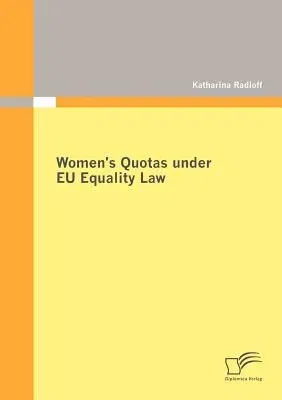Katharina Radloff
(Author)Women's Quotas under EU Equality LawPaperback, 11 January 2012

Qty
1
Turbo
Ships in 2 - 3 days
In Stock
Free Delivery
Cash on Delivery
15 Days
Free Returns
Secure Checkout
Print Length
72 pages
Language
English
Publisher
Diplomica Verlag
Date Published
11 Jan 2012
ISBN-10
3842872739
ISBN-13
9783842872738
Description
Product Details
Author:
Book Format:
Paperback
Country of Origin:
US
Date Published:
11 January 2012
Dimensions:
21.01 x
14.81 x
0.38 cm
ISBN-10:
3842872739
ISBN-13:
9783842872738
Language:
English
Pages:
72
Publisher:
Weight:
95.25 gm

